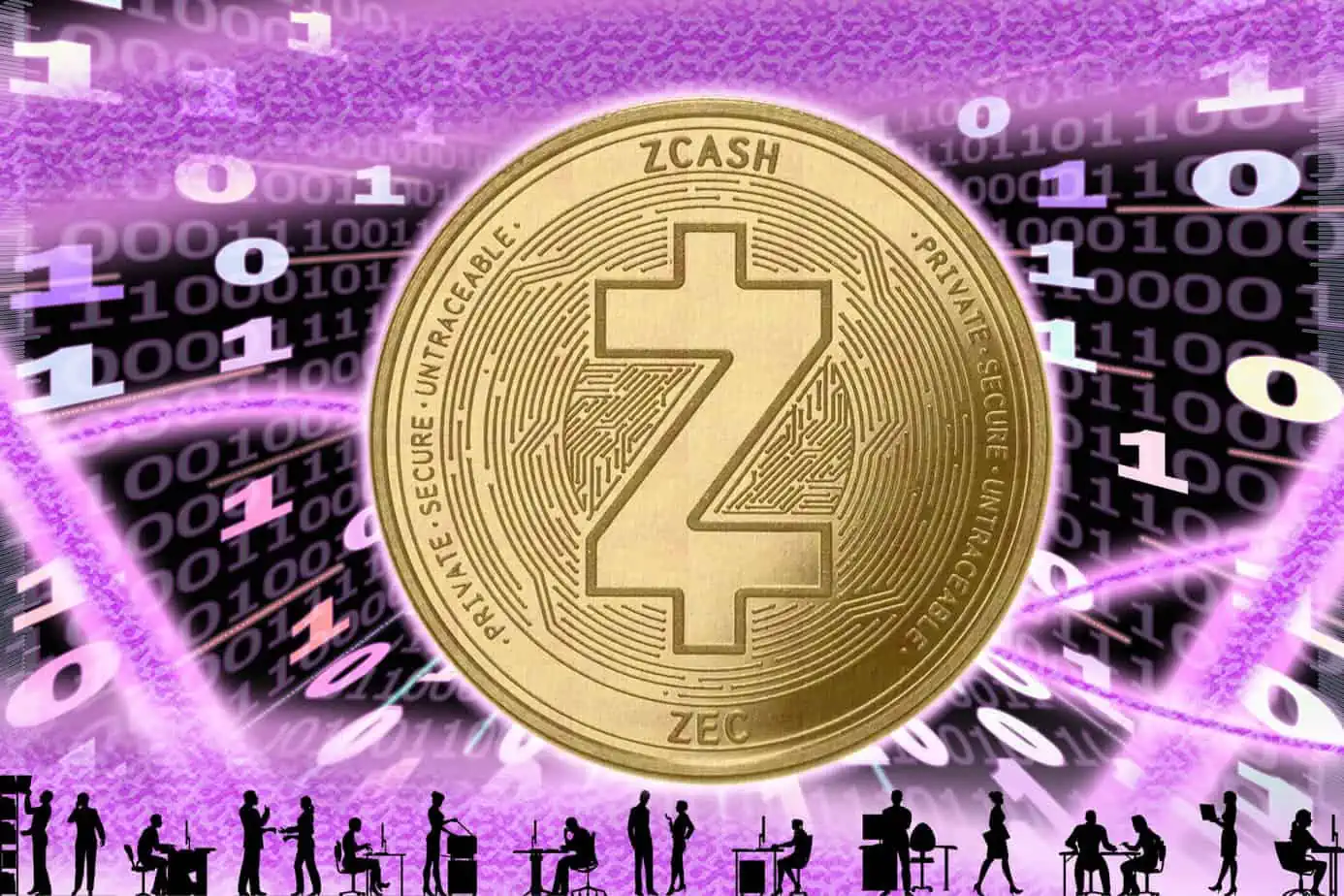Zcash is a privacy coin that provides the privacy and flexibility people like to have in cryptocurrencies. Bitcoin became popular among people and businesses who like to keep their data hidden because Bitcoin was considered digital cash when it was launched. But after a few incidents, people realized that Bitcoin’s transactions are traceable and it can lead to serious consequences.
In this situation, privacy coins like Zcash appeared as a solution because they enable users to transfer funds globally without showing their identity.
What is Zcash?
Zcash is a cryptocurrency network that supports anonymous digital transactions. Unlike other cryptocurrencies, it keeps the transaction data hidden from community members with the help of a cryptography tool. Zcash makes it almost impossible to track the payments because it’s a fungible token that doesn’t contain any history.
Zcash is launched as an alternative to Monero (another privacy coin). Unlike Monero, Zcash has introduced a user-friendly platform making it easy for anyone to transfer money globally.
Privacy – Zcash encrypts transactions through a zero-knowledge proofs protocol. Thus, the wallet address, size of the transaction amount, and other details and kept secret throughout the verification process.
Versatility – Zcash doesn’t only provide private transactions but also enables users to share their information publicly if they want. Similarly, the information of one party can be kept secret if they want.
Fungible – The governments and other institutions can’t figure out the full transaction history all Zcash tokens are the same and they don’t contain any specific number.
Widely Accepted – Zcash is listed on many cryptocurrency exchanges because it supports standard transaction procedures along with the privacy feature.
How Zcash Ensures Privacy?
The unique thing about cryptocurrencies is that they eliminate the need for dealing with centralized authorities while verifying transactions through software. The transactions are updated on the public ledger once they’re verified.
The verification process is completed with the help of validators who play an essential role in keeping the network safe while eliminating the risk of double-spending. But in this model, the transaction history is easily accessible by anyone on the network.
It makes it easier for governments and other institutions to track the details of a particular transaction. Zcash eliminates this problem by incorporating zk-SNARK, a zero-knowledge proofs protocol. It simply displays the true or false statement to the validators to complete the verification process.
But it doesn’t display any details about the transaction being processed. The best part is that the proof is verified in milliseconds because it’s pretty small in size. The prover can’t force the verifier to accept the false data because there isn’t any communication between them.
Moreover, the prover can only prove the data if he/she has the verifiable data available. Thus, Zcash provides the highest standards of anonymity to its users so they may independently transfer money without any risk of being caught.
Such kind of features seem quite attractive for drug dealers but they can also help businesses that like to keep their information hidden for several reasons.
Zcash Brief History
Zcash was officially launched in 2016 but its history goes back to 2013. Eli Ben-Sasson and Matthew Green published the Zerocoin whitepaper in 2013 identifying the user privacy concerns about Bitcoin. They introduced a solution to the problem in the form of Zerocoin.
The idea was endorsed by a large number of people but it couldn’t be implemented because it was particularly designed for Bitcoin. So, Bitcoin’s blockchain had to be changed to implement the idea and the majority of the members didn’t agree with it.
However, Zooko Wilcox, a cryptographer, started looking for ways to implement the idea behind Zerocoin in 2015. And the project was made public in October 2016 in the form of Zcash. Zcash Foundation was launched in March 2017 to ensure the consistent growth of the project.
Furthermore, the sapling upgrade was activated in October 2018 due to which the efficiency of the network was significantly improved.
How Does Zcash Work?
Zcash works like any other cryptocurrency network. There are multiple node operators who have the public ledger installed on their computers. The software creates a mathematical equation whenever a transaction is requested. The node operators solve this equation to receive the reward.
The unique feature of the Zcash network is that it distributes the equation into small values making it possible for everyone to participate in the validation process. The process of creating small values is completed with the help of Equihash, an algorithm that calculates the amount of RAM devoted by the miner.
Zcash Tokenomics
ZEC is the native token of the Zcash network that shares some similarities with Bitcoin. With a circulating supply of 14.5 million tokens, it has a market cap of $1.29 billion. It ranks among the 50 best cryptocurrencies in terms of market cap. It has a maximum supply of 21 million ZEC tokens.
The first halving of the Zcash network took place in 2020 that was supposed to control the supply of ZEC tokens. The next halving event is expected to happen in 2024.
Conclusion
Zcash is a privacy token designed for users who want to transfer money anonymously. But the users can choose to keep their information public if they don’t wish to use the privacy feature. Zcash is widely accepted in the crypto community as compared to Monero (XMR) because it’s designed on the pattern of popular cryptocurrency networks.
However, its privacy feature makes it an attractive choice for a wider audience. Feel free to get in touch with us if you need more information about how Zcash network works.

